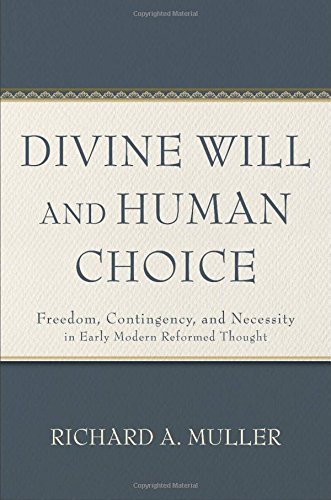A Brief Book Notice from Books At a Glance
The relationship between divine providence and human freedom remains one of the most vexing topics in Christian theology. Many gravitate to extreme ends of the spectrum, with a version of hyper Calvinism on one end or perhaps some form of open theism on the other. Christian theology seems ever in search of a way to articulate a balanced picture of a sovereign God in relationship to humans who can make choices.
This fresh study from an internationally respected scholar of the Reformation and post-Reformation eras shows how the Reformers and their successors analyzed and reconciled the concepts of divine sovereignty and human freedom. Richard Muller argues that traditional Reformed theology supported a robust theory of an omnipotent divine will and human free choice and drew on a tradition of Western theological and philosophical discussion that included such predecessor thinkers as Thomas Aquinas and Duns Scotus. In arguing his case, the book provides historical perspective on a topic of current interest and debate—the issue of freedom and determinism—and offers a corrective based on a broader analysis of the sources.
Carl Trueman says of this book:
There is not a more contested area in the study of Reformed orthodoxy than issues of divine foreknowledge, human free will, and the nature of contingency. Those new to the field can easily become overwhelmed by the sheer volume of primary literature and the confusing subtlety of the arguments. In this context, Divine Will and Human Choice by Richard Muller is a welcome addition to the literature because it offers both the neophyte and the scholar a superb account of the various questions involved and provides judicious critiques of the contemporary debate.
